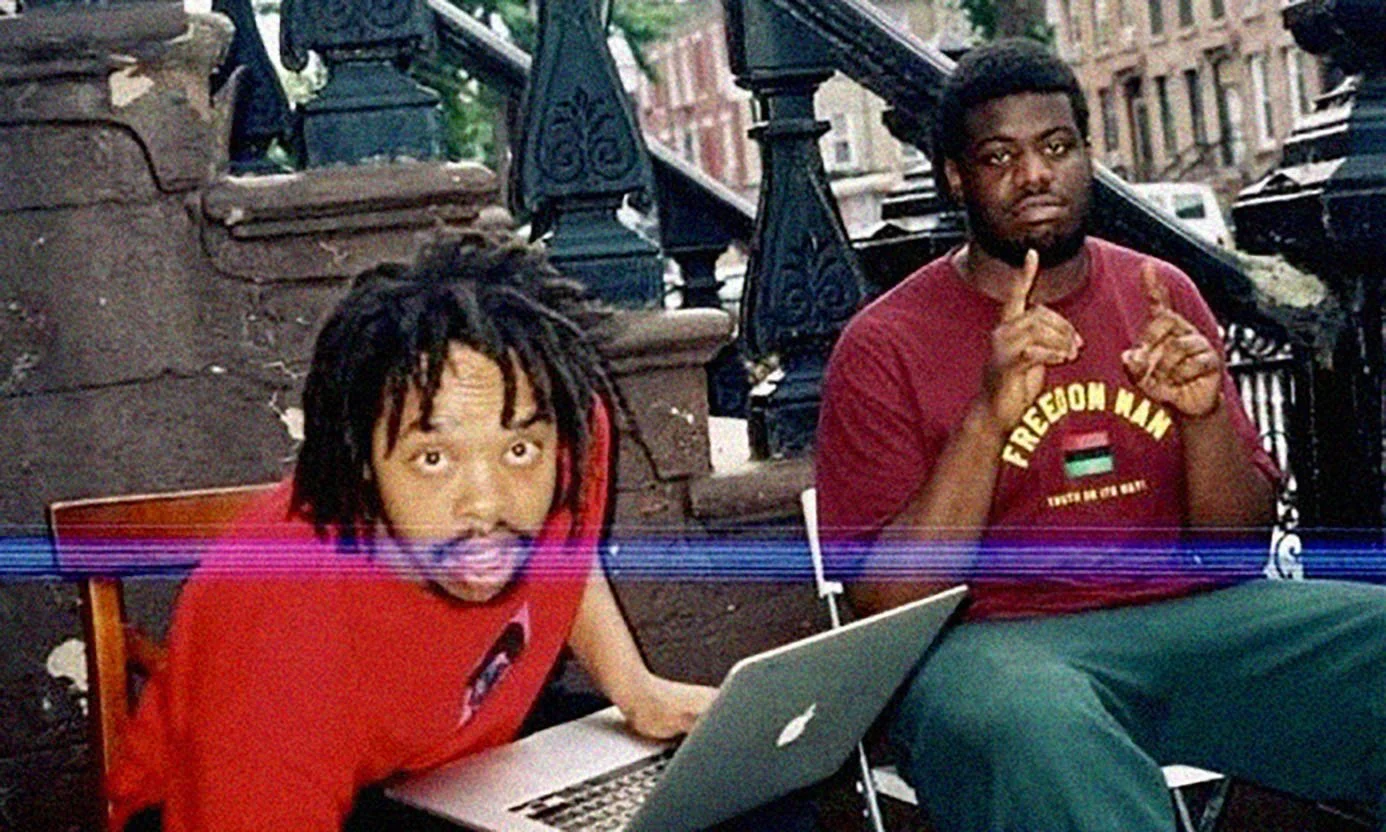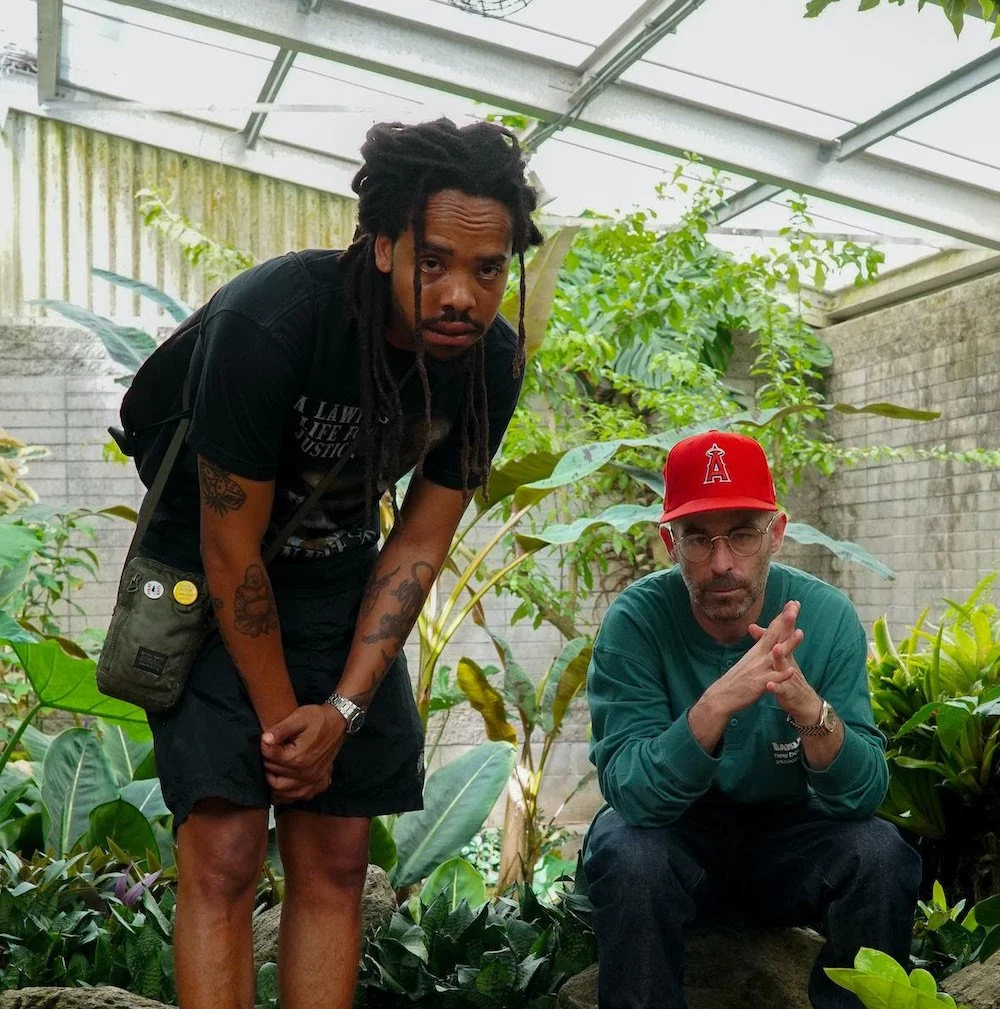Earl Sweatshirt & The Alchemist's 'VOIR DIRE' and MIKE's 'Burning Desire' Are Hip-Hop's Bleeding Edge
We're taking a deep dive into the current state of hip-hop under the lens of two seminal albums from last year, unpacking the larger rap landscape as we go.
It's weird to me that a conversation around such a young, inherently fluid genre of music is so often focused on its perpetual death. While the "hip hop is dying" critique is neither new nor unique to hip-hop—old-head hate transcends the genre. I don't think any other music is under the same microscope or held to the same standard as hip-hop, even by those firmly within its confines.
"Hip-hop is in a terrible place…the state of hip-hop right now is a lot of imitation," said Lil Yachty at Rolling Stone's Musicians on Musicians event late last year. "It's a lot of quick, low-quality music being put out. It's a lot less risk-taking, it's a lot less originality… People are too safe now. Everyone is so safe. I rather take the risk than take the L."
These comments are quite wild to me for a few reasons. Firstly, he’s 26. Secondly (and I'm sure he knows this), Yachty is a central figure of the SoundCloud era of hip-hop, eating well off of the same 'low-risk' music he's referring to ["One Night", "Minnesota"]. The music he's been making since 2017—including Let's Start Here.—hasn't felt that risky.
But more importantly, it's so interesting to see someone young, creative, and with deep access to and knowledge of the "industry" with thoughts like this. I don't mean to pile on Yachty—plenty have already. Still, I think his comments lead us to more significant questions about what "real hip-hop" even is. I don't think I have a definitive answer, but I definitely have an idea or at least a feeling.
To me, what separates good hip-hop from bad has nothing to do with syllables, rhyme schemes, Yeezus shit, or even content. You don't need to be KRS-One or Kendrick Lamar. I just need to know that you mean what the fuck you're saying, and I need to feel that. There should be real intention, which can be shown in many ways. And that's how I felt listening to Earl Sweatshirt and The Alchemist's VOIR DIRE, and MIKE's Burning Desire, both released last year. Both of these projects felt primarily supported by the creator's artistic intentions. No half-measures.
VOIR DIRE and Burning Desire completely embody what many think modern rap lacks. Each balances devastating truths with elaborate fables and is as tender and reflective as they are indignant and braggadocious. Earl speaks of fatherhood and memory, and MIKE speaks of love and revenge, but each ultimately speaks on what it means to be a grown-ass Black man, and all that entails.
“Got to know death. It wasn’t easy, but we are grown men, I really mean it like the song said, I gotta beat ‘em like The LOX. Got my demons on the wall press. Forearms and feet on necks.”
The first words on VOIR DIRE set the theme. For the rest of the song, Earl shifts between sharp, honest thoughts about his past and current self, and this theme flows throughout the entire album. He feels particularly locked in as a rapper, probably because he's spitting over some top-shelf beats from The Alchemist.
But beyond that, there is an unwavering commitment to forward progress while honouring what was, to tell his story on his own terms. "It wasn't easy, but we grown men, Earl spits. "I really mean it like the song said." He sounds poised on "Vin Skully" as he vividly pictures his addiction story. While positing that every journey towards healing starts with just one step—this is advice you can tell Earl's taken himself, whether you know his story or not.
Even at just 26 minutes, The Alchemist's production creates a perfect ecosystem for Earl's raps, and each track feels like a stop on a long journey through that system. He's leading us through his personal inferno like Virgil did Dante, but it isn't all hellish.
Earl deftly balances the highs with the lows, sliding effortlessly over more sombre joints like "Heat Check" and "27 Braids". He also makes time for triumphant moments like "Mancala", featuring Vince Staples, with a major key fitting as themes of Blackness, transformation, and the journey to personal wisdom dominate the track.
Earl has felt more like a sage or soothsayer than a rapper since 2018's Some Rap Songs. That reflects his growth as a rapper and, more importantly, as a man. From his touching sit down with his mother to the birth of his son to his sublime, keffiyeh-draped Camp Flog Gnaw 2023 set, it feels like we've witnessed the ongoing reincarnation cycle of an artist, and each stage has been excellent. The pen has never wavered.
MIKE's Burning Desire feels like a vast, expansive landscape like VOIR DIRE does, and MIKE leads us through it the same way—earnestly. But while Earl's earnestness comes off as solemn and mature, MIKE's is full of intense conviction and yearning for love, revenge, and community. The album is so many things at once that it begs the question, "What does it all mean?" And MIKE only gives us hints and symbols, which feels very deliberate.
“This is what you call a dark, romantic horror with a comedic twist. It tells the tale of a fire so deeply rooted in revenge and devastation that was masked with an intricate beauty. It begins somewhere along the lines of, well, somewhere along the borders of Liberia and Côte d’Ivoire, the home of the Dan tribe.”
The album intro's story centres on a mask maker of the aforementioned Dan tribe who becomes so frustrated with his "mediocre" mask-making that he grows vengeful—until he's surprised by a finely carved wooden mask with fierce brass teeth that appears in his living room. Is MIKE the mask maker? What does the mask represent? These are questions better left half-answered as we weave in and out of MIKE's dense, epic-like storytelling process.
The very next track is "Dambe". The song's name refers to a traditional, brutal Nigerian martial art form, but the message is about love. As MIKE blends deep romantic longing with intense and unseen rage, it's so evident that he recognises the power that these emotions hold and the responsibility that comes with expressing them so sincerely. "Know you can't see a bit of rage, but that don't mean I'm harmlеss," MIKE raps. "Desire and a bit of hate would fill me when I'm starved. It's the fire that my feelings made, it never gave me darkness."
These dualities are loosely defined but still easy to recognise, and they guide us throughout the rest of Burning Desire. Songs like "Snake Charm" and "Zombie" are classic MIKE—tender and disarmingly honest, shamelessly begging for a love reciprocated over choppy jazz samples. Much like his previous LPs, Disco! and Beware of the Monkey, these moments feel more like a deep catharsis for him than a traditional album.
But what's different with Burning Desire is that even though the autumnal puffer-jacket yearning is very much present, so is the gloating and the chest-thumping. His bag of tricks isn't that different; it's much more emotionally expanded and artistically refined. For example, in "Ho-Rizin", the first words he utters are "I got flying bitches out money, hide it in the couch money." I don't think the average MIKE fan would guess those were his if given a blind test, and that's a testament to his career growth, many dimensions, and why this project embodies what actually makes hip-hop cool. The same can be said for tracks like "Billboards" and "Baby Jesus."
There are so many high moments on this album. Earl's appearance on the trance-like "plz don't cut my wings," the expansion of the already diverse Young World Cinematic Universe on "Mussel Beach" (Niontay, El Cousteau), or the song transition from the groovy "Burning Desire" to the euphoric "THEY DON'T STOP IN THE RAIN", all felt like victory lap moments, as did the fact that this was his most well-rounded project as a producer to date.
Still, the moment that truly stood out was "REAL LOVE". Essentially a remix of the 1992 R&B classic by Mary J. Blige, this short, choppy ballad at the album's heart represents so much. For one, a Mary J. sample on an album titled Burning Desire is so fitting. Her original song is so raw and intensely compelling. MIKE revamps it dramatically while still maintaining the song's powerful emotional appeal. It's such a "god, yes!" moment for me. Because isn't 'real love' what we all ultimately burn for deep inside?
Earl Sweatshirt's VOIR DIRE and MIKE's Burning Desire are two holistic audial experiences from two artists in full bloom. The projects feel like cousins, not just because Earl and MIKE have been collaborators for a few years. From Earl's first shoutout to MIKE making albums with The Alchemist, this has always felt like a connected, "everybody eats' approach to rap, and the continued success of others within that circle like Sideshow, Liv.e, El Cousteau, and Niontay have shown dividends.
Even though they all sound different and flow differently, it works because it's all still real rap—it moves you regardless of how simple or how complex the lyrics are because the creators behind it truly approached it with care. Earl and MIKE unlock this through deliberate attention to themselves and their emotions, hailing the ancestors while always looking towards the future. They are master storytellers and keen world-builders, uniquely equipped to show us as Black people how to shake off the malaise and choose joy and community in the face of despair. And they aren't the only ones…
If that's not hip-hop, then what is?
Stream Burning Desire and VOIR DIRE below:



